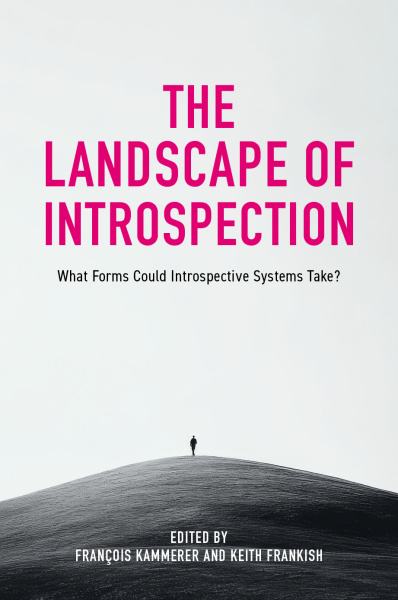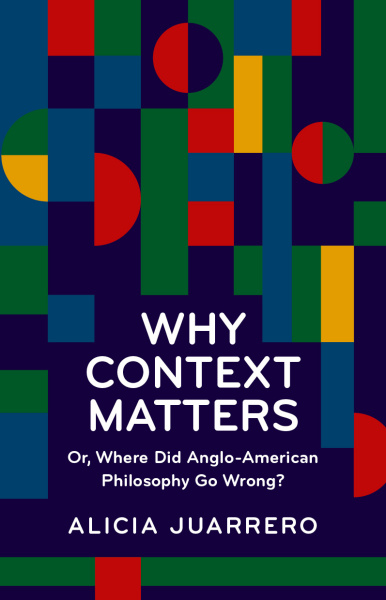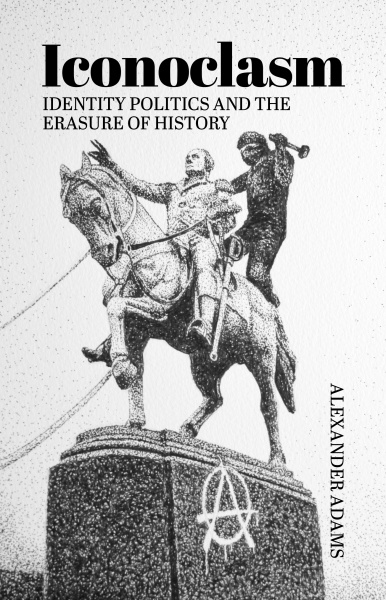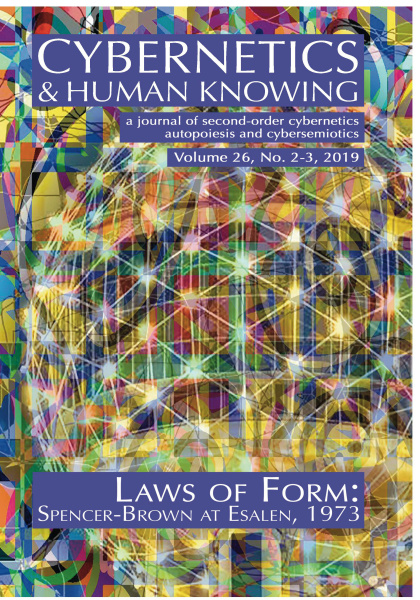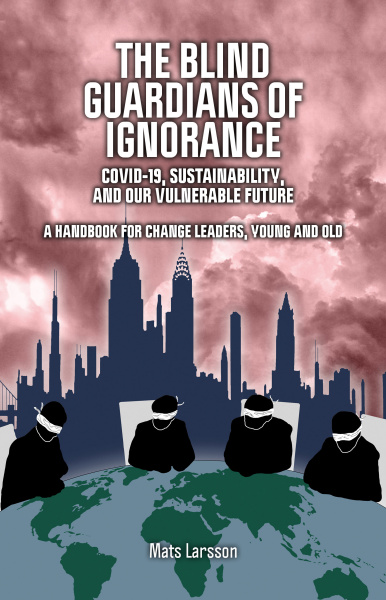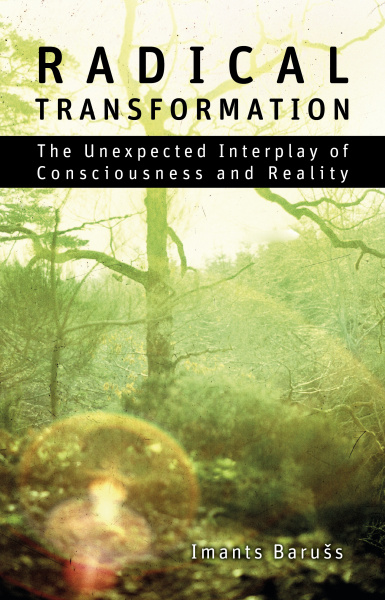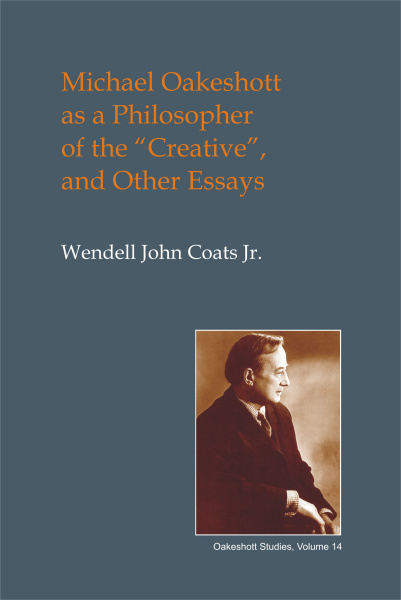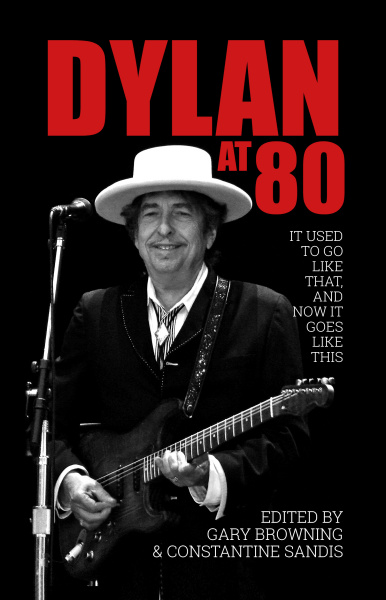Imprint Academic
-

The Prophets of Doom
The Prophets of Doom explores eleven thinkers who not only dared to contradict the dominant linear and progressive view of history, but also predicted many of the political and social maladies through which we are living.
-

Diversity, Inclusion, Equity and the Threat to Academic Freedom
Policies of Diversity, Inclusion and Equity (DIE) have increasingly led to the exclusion of individuals who do not share a radical 'woke' ideology on identity politics and to the suppression of the academic freedom to discuss such dogmas. Here we put together some particularly illustrative cases of such repression in a single book.
-

Artivism
The Battle for Museums in the Era of Postmodernism
Using artist statements, theoretical writings, statistical data, historical analysis and insider testimony, British art critic Alexander Adams examines the origins, aims and spread of artivism (activism through art). His findings suggest the perception of artivism as a grassroots humanitarian movement could not be more misleading.
-

The Past is a Future Country
The Coming Conservative Demographic Revolution
The Past is a Future Country shows how a resistant class of intelligent, religious conservatives will band together to preserve enclaves of our currently failing civilization — a failing civilization caused by a rejection of traditional values and an epidemic of narcissists who compete to signal their individuality and moral superiority.
-

Rethinking Thinking
Problem Solving from Sun Tzu to Google
Everyone, as the French philosopher René Descartes pointed out long ago, thinks. That's the easy bit. The harder part, and what this book is really about, is how to make your thinking original and effective. The focus here is on practical suggestions about ways to think better.
-

Democracy in Crisis
Lessons from Ancient Athens
From the storming of the Capitol and the rise of authoritarian rhetoric and politicians to the challenge of global warming, liberal democracy faces a twin crisis of legitimacy and efficacy. Democracy in Crisis points to long neglected resources from the world's first democracy - Ancient Athens - prompting us to think beyond our current practices.
-

Dylan at 80
It used to go like that, and now it goes like this
2021 marks Bob Dylan's 80th birthday and his 60th year in the music world. It invites us to look back on his career and the multitudes that it contains. The essays in this book explore the Nobel laureate's masks, collectively reflecting upon their meaning through time, change, movement, and age.
-

Identity Politics and Tribalism
The New Culture Wars
This book guides the reader through a journey that connects the dots on the various fronts of the culture wars. There is a thread that links together the expressions of group and identity conflicts in today's West: from Left to Right, from SJWs to Trumpites, from feminism to the manosphere, and from critical race theorists to white nationalists.
-

Quality of Life
A Post-Pandemic Philosophy of Medicine
The Covid-19 pandemic has shown the need for a fresh look at health and health care. This book offers a philosophical critique of medicine as applied science, but more positively it stresses the social causes of disease and argues for greater equity in the distribution of resources and the benefits of a wider evidence-base for medical treatments.
-

Hidden Agender
Transgenderism's Struggle Against Reality
In Hidden Agender, Casey develops a timely and provocative defence of free speech and toleration against the transgenderist ideology that has infiltrated so much of the media, the political establishment and the law. Opposing ideas, not individuals, Hidden Agender provides a compelling critique of the transgender ideologists and trans activists.
-

The Blind Guardians of Ignorance
Covid-19, Sustainability, and Our Vulnerable Future
Politicians, business leaders, and sustainability experts have assumed that market forces will drive the transformation to sustainability. This book explains in clear language why this view is wrong and what we need to do to prepare for the future of humanity. Governments will have a key role to play in this process, and they need a wake-up call.
-

Iconoclasm, Identity Politics and the Erasure of History
This book surveys the origins, uses and manifestations of iconoclasm in history, art and public culture. It is one of the first books to examine the outbreak of iconoclasm in Europe and North America in the summer of 2020 in the context of previous outbreaks.
-

Don't Believe What You Think
Arguments for and against SCAM
This book discloses the errors and lies that misled you into believing things about so-called alternative medicine (SCAM) that are untrue. It analyses the many falsehoods used in the promotion of SCAM, explains the erroneous thinking behind them, and presents the scientific evidence in easily understandable terms.
-

After #MeToo
Feminism, Patriarchy, Toxic Masculinity and Sundry Cultural Delights
In After #MeToo, Gerard Casey provides a critical assessment of the #MeToo movement, situating it in the context of the radical feminism of which it is just the latest manifestation. He argues that if there is such a thing as the patriarchy, it is singularly and spectacularly ineffectual.
-

Myth, Meaning, and Antifragile Individualism: On the Ideas of Jordan Peterson
Jordan Peterson has attracted a high level of attention. Focusing on Peterson's ideas rather than controversies, this book explores his answers to perennial questions. Champagne unites the different strands of Peterson's thinking in a handy summary and then articulates his main critical concerns.
-

ZAP
Free Speech and Tolerance in the Light of the Zero Aggression Principle
In ZAP, Gerard Casey presents a critical and unified approach to both free speech and tolerance based on the Zero Aggression Principle, keeping the critical discussion topical and grounded by reference to current events.
-

Culture War
Art, Identity Politics and Cultural Entryism
In Culture War Alexander Adams examines a series of pressing issues in today's culture: censorship, Islamism, Feminism, identity politics, historical reparations and public arts policy.
-

At Our Wits' End
Why We're Becoming Less Intelligent and What it Means for the Future
We are becoming less intelligent. This is the shocking yet fascinating message of At Our Wits' End. The authors take us on a journey through the growing body of evidence that we are significantly less intelligent now than we were a hundred years ago, why that may be, and what its consequences might be for the future.
-

Immigration Control in a Warming World
Realizing the Moral Challenges of Climate Migration
In the 21st century, climate change is projected to increase the already significant immigration pressures that rich countries in Europe and North America face. However, the willingness of citizens in destination countries to let further foreigners immigrate is unlikely to keep pace with that increase. These issues are discussed in this book.
-

The Tribe
The Liberal-Left and the System of Diversity
In The Tribe, Ben Cobley guides us around the 'system of diversity' that has resulted from identity politics, exploring the consequences of offering favour and protection to some people but not others based on things like skin colour and gender.
-

SCAM
So-Called Alternative Medicine
So-called alternative medicine (SCAM) is popular and therefore important. This book was written by someone who received SCAM as a patient, practised SCAM as a doctor, and researched SCAM as a scientist. It provides an insider's perspective by covering aspects of SCAM which most other books avoid.
-

Michael Oakeshott: Notebooks, 1922-86
The sixth volume in the series Michael Oakeshott: Selected Writings. From the 1920s to the 1980s Oakeshott filled dozens of notebooks with his private reflections, both personal and intellectual. Their contents range from aphorisms to miniature essays, forming a unique record of his intellectual trajectory over his entire career.
-

Get Over Yourself
Nietzsche for Our Times
Get Over Yourself both uses Nietzsche's philosophy to understand our society, and takes our society to explain his philosophy.
-

A Guide to the Classics
Or How to Pick the Derby Winner
A Guide to the Classics is a light-hearted manual on how to pick the Derby winner. This long-awaited edition of Griffith and Oakeshott's classic text includes a new preface and foreword by horse racing journalist and author Sean Magee, and political commentator Peter Oborne.
-

Your Brain's Politics
How the Science of Mind Explains the Political Divide
In this brief introduction, Lakoff and Wehling reveal how cognitive science research has advanced our understanding of political thought and language, forcing us to revise common folk theories about the rational voter.
-

What is Wrong with Us?
Essays in Cultural Pathology
The pieces collected in this volume are not presented as amounting to an overall account or theory of our cultural condition. They are offered merely as examples of serious criticism, of what we need if we are to begin to think more profitably about our condition.
-

The Demarchy Manifesto
For Better Public Policy
Demarchy exploits the possibilities of modern communications to give new role to public discussion. It takes the initiative in formulating policy on each specific problem out of the hands of political parties and into the hands of those most strongly affected by that particular problem. John Burnheim explains why this needs to be done.
-

Why Rape Culture is a Dangerous Myth
From Steubenville to Ched Evans
This book argues that the belief in a 'rape culture' is seriously distorting our discussion of sexual violence.
-

Playing the Long Game
How to Save the West from Short-Termism
This book explains how short-termism is damaging our economy and what we can do about it.
-

Social Radicalism and Liberal Education
The book examines why social radicals supported liberal education, why they have moved away from it, and what the implications are for the future of an intellectually stimulating and culturally literate education.
-

Capitalism and Human Values
In this book we construct a foundation for values based on our common humanity and explore personal, social and political values from a fresh perspective.
-

The Decision Trap
Genetic Education and Its Social Consequences
The Decision Trap questions a dogma of our time: the assumption that genetic education empowers citizens and increases their autonomy.
-

Orwell's Faded Lion
The Moral Atmosphere of Britain 1945-2015
This book confronts the actual direction taken by British society against the background of the high hopes of the generation that survived the war.
-

Educating Character Through Stories
This book argues that the narratives and stories of great literary works are of neglected significance and value for contemporary understanding of human moral association and character.
-

That's Racist!
How the Regulation of Speech and Thought Divides Us All
This book suggests that modern day anti-racism can be argued as having taken over from old-fashioned racism as the dominant racialising force in British society.
-

Global Philosophy
What Philosophy Ought to Be
This book is about education, learning, rational inquiry, philosophy, science studies, problem solving, academic inquiry, global problems, wisdom and, above all, the urgent need for an academic revolution.
-

The Unleashed Scandal
The End of Control in the Digital Age
In an age of ubiquitous digital media and permanent mutual observation scandals are omnipresent. This books describes recent case-(hi)stories, discussing public figures such as Tiger Woods and Anthony Weiner, the powerful and the helpless that suddenly find themselves in a worldwide pillory.
-

How Universities Can Help Create a Wiser World
The Urgent Need for an Academic Revolution
In this lucid and provocative book, Nicholas Maxwell argues convincingly that we need urgently to bring about a revolution in universities round the world so that their basic aim becomes wisdom, and not just knowledge.
-

Global Modernity
And Other Essays
This group of essays follows a similar eclectic pattern to that found in Tom Rubens' previous essay-collections published by Imprint Academic. The author's aim is to appeal widely but also succinctly: in a way that will stimulate readers to develop their own thoughts on, and consult more extensive treatments of, the subjects in question.
-

There is No Such Thing As a Free Press...
And we need one more than ever
The aim of this book is to a launch a polemic for the freedom of the press against all of the attempts to police, defile and sanitise journalism today.
-

The Philosophy of Punishment
In this volume, the author sets aside the usual division between theories of punishment that do or do not focus on retribution. In its place he proposes and explores the distinction between internalist and externalist theories.
-

Beyond Patriotism
From Truman to Obama
Beyond Patriotism argues that some millions of Americans have become "post-national" people who put the good of humanity ahead of patriotism or national honour. It discusses the decisions that disillusioned them from the Vietnamese War, to the attempt to put Pol Pot back into power, to the sanctions against Iraq.
-

Reaction
Against the Modern World
In this book the author explores the different facets of reaction and suggests that there is more to the concept than just a gratuitous insult.
-

Politics and Neo-Darwinism
And other essays
This collection of essays is eclectic, covering certain political, ethical, cultural and philosophical topics. But running through all the material is the evolutionary-naturalistic perspective stated in the opening essay.
-

Public Service on the Brink
The contributors to this book mount a robust defence of the concept and practice of public service at a crucial time for its future.
-

The Economic Imperative
Leisure and Imagination in the 21st Century
This book explores the role of leisure in modern life. It was written in the belief that leisure sets us apart as a species, that what is "useless" by commercial standards is probably the best thing we have going for us, and that leisure is under attack, in high danger of being lost, and has been for some time.
-

Friendship and the Political
Kierkegaard, Nietzsche, Schmitt
This book reappraises the idea of "friendship" in contemporary political thought. The author explores the possibilities for theorising friendship in modern times through an examination of three seminal thinkers: Kierkegaard, Nietzsche and Schmitt.
-

Panic on a Plate
How Society Developed an Eating Disorder
The range, cost and quality of food in Western societies have never been more favourable, yet food is also the focus of a great deal of anxiety. There are concerns we'll get steadily fatter and more unhealthy, with consequences for our quality of life, our children's behaviour and the environment. This book challenges these ideas.
-

Lotteries in Public Life
A Reader
Until recently, there was no theory to make sense of lotteries and what they can do. The past few decades have changed that with a veritable renaissance of studies on lotteries. This book collects fourteen of the most important of these papers, and offers a critical introduction tying them together.
-

On Liberty and Peace Part 2
Peace
The author writes: In this project I set out to provide an answer to two fundamental questions of political philosophy. How can human beings live together, in conditions of co-operation over time, enjoying what Kant famously called 'perpetual peace'? And how much individual freedom can we expect to enjoy?
-

Democracy and the Fall of the West
Democracy is killing the West. That is the stunning conclusion of this book that tears apart the consensus underpinning modern political assumptions. It argues that the secret of the West's success is not Democracy, but Liberalism.
-

Christian Anarchism
A Political Commentary on the Gospel: Abridged Edition
Christian anarchism has been around for at least as long as "secular" anarchism. The existing literature cites Leo Tolstoy as its most famous (sometimes even as the only) proponent, but there are many others. This book presents Christian anarchism to both the wider public and the wider academic community.
-

Evolving Ethics
The New Science of Good and Evil
This book describes the application of Artificial Life simulation to evolutionary scenarios of wide ethical interest, including the evolution of altruism, rape and abortion, providing a new meaning to "experimental philosophy".
-

Just Another Ape?
This book argues that whatever first impressions might tell us, apes are really not 'just like us'. Science has provided strong evidence that the boundaries between us and other species are vast.
-

The Earth Is Our Home
Mary Midgley's critique and reconstruction of evolution and its meanings
This book demonstrates that Mary Midgley's philosophy of evolution points the way towards considering the earth as our only true home, since we are products of this planet and its evolving and complex life along with every other organism.
-

Lotteries for Education
Lotteries are widely used to decide places (seats) at schools, colleges and universities. Conall Boyle explores many examples to find out why. The emotional turmoil that the use of ballots can cause to students and parents alike is graphically described.
-

On Liberty and Peace, Part 1
Liberty
The author writes: In this project I set out to provide an answer to two fundamental questions of political philosophy. How can human beings live together, in conditions of co-operation over time, enjoying what Kant famously called 'perpetual peace'? And how much individual freedom can we expect?
-

Economic Reform and a Liberal Culture
And Other Essays on Social and Cultural Topics
This second collection of essays for the Societas series by Tom Rubens continues the author's discussion of contemporary issues contained in "Progressive Secular Society" (Imprint Academic 2008).
-

The Convention on Modern Liberty
The British Debate on Fundamental Rights and Freedoms
This book contains contributions to the convention on modern liberty organised by Open Democracy in London, 2009.
-

Leadership in Christian Higher Education
This book provides a range of experienced voices, including the Archbishop of Canterbury, that reflect on the character and mission of leadership in Christian higher education in the 21st Century.
-

Christian Anarchism
A Political Commentary on the Gospel
Christian anarchism has been around for at least as long as "secular" anarchism. The existing literature cites Leo Tolstoy as its most famous (sometimes even as the only) proponent, but there are many others. This book presents Christian anarchism to both the wider public and the wider academic community.
-

Profit, Prudence and Virtue
Essays in Ethics, Business and Management
Essays in the ethics of business and management.
-

Practical Philosophy
Ethics, Society and Culture
In this wide ranging volume of philosophical essays John Haldane explores some central areas of social life and issues of intense academic and public debate.
-

Standing Up to Supernanny
Parenthood, we are told, requires a massive adjustment to our lives, emotions, and relationships, and we have to be taught how to deal with that. But can it really be so bad that we need constant counselling and parenting classes? This book is about asking: Why have we invited Supernanny into our living rooms - and how can we kick her out?
-

Moral, Social and Political Philosophy of the British Idealists
The British idealists of the late 19th and early 20th century are best known for their contributions to metaphysics, logic, and political philosophy. Yet they also made important contributions to social and public policy, social and moral philosophy and moral education, as shown by this volume.
-

The School of Freedom
A liberal education reader from Plato to the present day
Liberal education is a term that has fallen from use in Britain, its traditional meaning now freely confused with its opposite. This book is intended to correct that misapprehension, through the presentation of original source material from the high points in the liberal education tradition with particular focus on the British experience.
-

Here For Our Children's Children?
Why we should care for the earth
This study reviews the many different bases for wanting to preserve the environment. By seeing how protagonists approach the same situation from different assumptions, some of the origins of environmental conflict may be established, and ways of resolving conflict can be identified.
-

Darwinian Conservatism
A Disputed Question
A reprint of Larry Arnhart's essay Darwinian Conservatism with comment and criticism from a variety of contributors.
-

Understanding Faith
Religious Belief and Its Place in Society
A philosophical discussion of religion and its place in society. The book will examine the nature of faith and of the attacks upon it; considering both external and internal criticism - from non-believers and between believers.
-

Self and Society
Studies in the Evolution of Culture
A series of essays on the evolution of culture, dealing with topics including the city and consciousness, evolution of the afterlife, literary and mathematical archetypes, machine consciousness and the implications of 9/11, and the invasion of Iraq.
-

Vocabulary of a Modern European State
Essays and Reviews 1953-1988
The Vocabulary of a Modern European State is the companion volume to The Concept of a Philosophical Jurisprudence and completes the enterprise of gathering together Oakeshott's previously scattered essays and reviews.
-

The Woman Racket
The new science explaining how the sexes relate at work, at play and in society
Notwithstanding its provocative title, The Woman Racket is a serious scientific investigation into one of the key myths of our age – that women are oppressed by the 'patriarchal' traditions of Western societies.
-

Liberty, Authority, Formality
The essays in this volume are all inspired by the historical scholarship of J.C. Davis. Davis's analyses of groups like the Levellers and individuals like Gerrard Winstanley and Oliver Cromwell has reoriented the inquiry around the contemporary moral themes of liberty, authority and formality -- around which concepts this volume engages.
-

Seeking Meaning and Making Sense
Collection of short essays that range across philosophy, politics, general culture, morality, science, religion and art, focusing on questions of meaning, value and understanding.
-

Progressive Secular Society
And other essays relevant to secularism
This book gives a set of 'secular thoughts for the day' – many only a page or two long – on topics as varied as Shakespeare and Comte, economics, science and social action.
-

The Landscape of Humanity
Art, Culture and Society
The fourteen essays in this book develop a conception of human culture, which is humane and traditionalist.
-

Healing, Hype or Harm?
A Critical Analysis of Complementary or Alternative Medicine
The scientists, academics and practitioners writing this book are not 'against' complementary or alternative medicine (CAM), but they are very much ‘for’ evidence-based medicine and single standards. They aim to counter-balance the many uncritical books on CAM and to stimulate intelligent, well-informed public debate.
-

Enemies of Progress
Dangers of Sustainability
This polemical book examines the concept of sustainability and presents a critical exploration of its all-pervasive influence on society, arguing that sustainability, manifested in several guises, represents a pernicious and corrosive doctrine that has survived primarily because there seems to be no alternative to its canon.
-

Luhmann Applied
This book brings together international experts on the application of Niklas Luhmann's theory of society as autopoietic communication.
-

In Bed with Madness
Trying to make sense in a world that doesn't
In Bed with Madness is 'a well-argued, powerful and profound indictment of contemporary culture', stylishly written – a reviewer said he would have bought it just for its humour!
-

The Greek Inheritance
Ancient Greek wisdom for the digital era
The Greek Inheritance traces the conflict between Greek values and those of the repressive, religious or capitalist order throughout the millennia. The book is challenging and well-written with a light, humorous touch.
-

Froude Today
A.L. Rowse called fellow-historian James Anthony Froude the 'last great Victorian awaiting revival'. The question of power is the problem that perplexes every age: in his historical works Froude examined how it applied to the Tudor period, and defended Carlyle against the charge that he held the doctrine that ‘Might is Right’.
-

Gangraena
A facsimile of 17th century polemical work, with a modern introduction.
-

Distributing Health Care
Principles, Practices and Politics
How ought a society to distribute its publicly funded healthcare resources? Few questions are in more urgent need of an answer. This multidisciplinary investigation brings together the insights of philosophy, clinical science, health economics, operational research and public policy analysis.
-

Forgiveness
How Religion Endangers Morality
In his book The Moral Case against Religious Belief (1997), the author argued that some important virtues cease to be virtues at all when set in a religious context, and that a religious life is, in many respects, not a good life to lead. In this sequel he takes up the theme again.
-

Joseph Conrad Today
This book argues that the novelist Joseph Conrad's work speaks directly to us in a way that none of his contemporaries can. Conrad's scepticism, pessimism, emphasis on the importance and fragility of community, and the difficulties of escaping our history are important tools for understanding the political world in which we live.
-

Histories and Discourses
Rewriting Constructivism
Siegfried J. Schmidt is closely associated in Germany with the cross-disciplinary research programme of Radical Constructivism. In Histories & Discourses he carries out a change of perspective from media and communication studies to studies of culture and the philosophy of language.
-

Great Reading Disaster
Reclaiming Our Educational Birthright
By the late 1980s half the nation's children were receiving 11 years of progressivist schooling that failed to give them even the elementary basis of education that was completed by the age of 7 in earlier days. This book explains the causes and provides the solution to this problem.
-

Education and the Voice of Michael Oakeshott
The work of Michael Oakeshott has retained a striking currency in philosophical discourse about education. In the light of this continuing interest and of Oakeshott's extensive writing on so many aspects of education, it is timely that a book be published on his thinking on the subject.
-

Politics and Society in Scottish Thought
This volume illustrates the way political and social philosophers of 18th-century Scotland tried to answer the following question: 'What is, and what ought to be, the relationship between the modern market and stable, desirable social order?'
-

Science in Civil Society
These days, science is everywhere. How should we respond to this ambiguous and ubiquitous thing called science?
-

Public Health and Globalisation
Why a National Health Service is Morally Indefensible
Claims that there are good arguments for a public health service that do not amount to arguments for a national health service, but for something that looks far more like a transnational health service.
-

Institution of Intellectual Values
Realism and Idealism in Higher Education
This is a revised and expanded version of the much praised short book Universities: The Recovery of An Idea.
-

Earthy Realism
The Meaning of Gaia
GAIA, named after the ancient Greek mother-goddess, is the notion that the Earth and the life on it form an active, self-maintaining whole. With global warming now an accepted fact, the lessons of GAIA have never been more relevant and urgent.
-

Paranormal and the Politics of Truth
A Sociological Account
This book is based on the author's ten-year research into the politics of belief surrounding paranormal ideas.
-

Jesus and the Trojan War
Myth and Meaning for Today
This book looks at ways in which stories are presented and understood; and how story-tellers - and their listeners - may wittingly or unwittingly confuse fact with fiction. This book explores the parallels between four stories (the Trojan war, Moses, King Arthur, and Jesus).
-

Debating Humanism
This book features a cross-disciplinary dialogue among writers who are sympathetic to the humanist tradition and interested in developing a new humanist project through debate.
-

Principles and Politics in Contemporary Britain
This book shows the importance of political ideas in policy-making and demonstrates the extent to which pragmatic considerations preclude the imposition of rigid ideological programmes.
-

Life, Liberty, and the Pursuit of Utility
Happiness in Philosophical and Economic Thought
A volume on the nature, ingredients, causes and consequences of human happiness by the father and son team of Anthony and Charles Kenny.
-

Great Immigration Scandal
This book outlines the events that led to the decision that the author could no longer participate in a policy that appeared to be at odds with the intentions of Parliament. This book includes an analysis of the relevant scholarly literature in demography, economics and psychology.
-

Making it Happen in Public Service
Devolution in Wales as a Case Study
This book examines the change management strategies and processes employed to ensure that the Labour Government's commitment to devolution became a reality in Wales.
-

Gypsy Debate
Can Discourse Control?
Jo Richardson explores the extent to which modes of discourse reflect antipathy towards gypsies and travellers, and control and shape the treatment of this minority group by the rest of society. The focus is housing policy, but her discussion has a wide application.
-

Conservative Consensus?
Housing Policy Before 1997 and After
New Labour would like to portray 1997 as a new beginning for public policy, but Peter King argues that we now have, in housing and in other areas of public policy, a consensus based on Thatcherite reforms.
-

Rescuing the Past
The Cultural Heritage Crusade
Jonathan Tokeley was contentiously convicted of 'smuggling' Egyptian antiquities in a landmark trial - one of a series which had devastating consequences for the antiquities market. This book is both a philosophical analysis and a demonstration - in one country, Egypt - of the Cultural Heritage Crusade's horrific consequences.
-

Knowledge Monopolies
The Academisation of Society
Historians and sociologists chart the consequences of the expansion of knowledge; philosophers of science examine the causes. This book bridges the gap. The focus is on 'academisation'.
-

Moral Mind
A Study of What it is to be Human
The reality and validity of the moral sense — which ordinary people take for granted — took a battering in the last century. Haslam shows how important the moral sense is to the human personality and exposes the weakness in much current thinking that suggests otherwise.
-

Darwinian Conservatism
This book suggests that Darwinian biology sustains conservative social thought by showing how the human capacity for spontaneous order arises from social instincts and a moral sense shaped by natural selection in human evolutionary history.
-

Great Abdication
Why Britain's Decline is the Fault of the Middle Class
The middle class provides British society with its stability and strength. According to Deane's contentious thesis, our middle class has abstained from its responsibility to uphold societal values, and the enormously damaging collapse of our society’s norms and standards is largely a result of that abdication.
-

Paradoxical Primate
Human beings have an evolved but highly adaptable nature. This book sets out to establish a new framework for understanding human nature, from an evolutionary perspective but drawing on existing social sciences.
-

Values, Education and the Human World
The essays in this book consist of revised versions of Victor Cook Memorial Lectures.
-

Philosophy and Its Public Role
This brings together moral, social and political philosophers from Britain, Canada, New Zealand and the United States who explore a wide range of issues under the three headings of Philosophy, Society and Culture; Ethics, Economics and Justice; and Rights, Law and Punishment.
-

Snake That Swallowed Its Tail
Some Contradictions in Modern Liberalism
Tracing its effects through the media, politics and the public services, the author argues that hollowed-out liberalism has helped to produce our present discontent.
-

Our Last Great Illusion
A Radical Psychoanalytical Critique of Therapy Culture
'Therapy may be mad,' declares Rob Weatherill in this outspoken volume. This book aims to refute the fashion for a return to a pre-Cartesian ideal of harmony and integration.
-

What is History? And Other Essays
Selected Writings
This highly readable new collection of thirty pieces by Michael Oakeshott, almost all of which are previously unpublished, covers every decade of his intellectual career.
-

How Good an Historian Shall I be?
In this book Marnie Hughes-Warrington begins with the facet of Collingwood's work best known to teachers — re-enactment — and locates it in historically-informed discussions on empathy, imagination and history education.
-

Off with Their Wigs!
Judicial Revolution in Modern Britain
On Thursday June 12th 2003, a press release concerning a Cabinet reshuffle declared as a footnote that the office of Lord Chancellor was to be abolished and that a new Supreme Court would replace the House of Lords as the highest court in the United Kingdom. This book critically analyses the Government's proposals.
-

In Defence of Modernity
The Social Thought of Michael Oakeshott
Although Oakeshott's philosophy has received considerable attention, the vision which underlies it has been almost completely ignored. This vision, which is rooted in the intellectual debates of his epoch, cements his ideas into a coherent whole and provides a compelling defence of modernity.
-

Modernisation Imperative
This book argues that contemporary society in Western democracies is generally misunderstood to be a pyramidal hierarchy dominated either by government or the economy. Neither view is correct.
-

Democracy, Fascism and the New World Order
Democracy is not a universal good, it is a political system, and like all political systems it is open to corruption. The word 'democracy' means ‘rule by the people’, not rule by a simple majority. To achieve rule by all the people, it used to be accepted that as much of civil life should be kept out of party politics as possible.
-

Liberty Option
The Liberty Option advances the idea that for compelling moral as well as practical reasons it is the free society -- with the rule of law founded on the principles of private property rights, its complete respect for individual sovereignty and properly limited legal authorities -- not one or another version of statism that serves justice best.
-

Managing Britannia
Culture and Management in Modern Britain
This book shows how modern management practices have all but destroyed politics, education, culture and religion — modern management is the cause of our national malaise.
-

Case Against the Democratic State
An Essay in Cultural Criticism
We are now so familiar and accepting of the State's pre-eminence in all things that few think to question it, and most suppose that democratic endorsement legitimizes it. The aim of this book is to present a compelling argument against both presumptions.
-

Education! Education! Education!
Managerial Ethics and the Law of Unintended Consequences
The essays in this book criticise the new positivism in education policy, whereby education is systematically reduced to those things that can be measured by so-called 'objective' tests.
-

New Idea of a University
The New Idea of a University is an entertaining and highly readable defence of the philosophy of liberal arts education and an attack on the sham that has been substituted for it. It is sure to scandalize all the friends of the present establishment and be cheered elsewhere.
-

God in Us
A Case for Christian Humanism
God In Us is a radical representation of the Christian faith for the 21st century. Following the example of the Old Testament prophets and the first-century Christians it overturns received ideas about God. God is not an invisible person 'out there' somewhere, but lives in the human heart and mind as 'the sum of all our values and ideals'.
-

Dumbing Down
Culture, Politics and the Mass Media
This text is a compilation of essays on changes in culture and the media and the dangers of their manipulation.
-

Evolutionary Origins of Morality
Cross Disciplinary Perspectives
This volume includes four principal papers and a total of 43 peer commentaries on the evolutionary origins of morality.
-

Holding Up a Mirror
How Civilizations Decline
Using theatre as a measure society's health, this book shows that Ancient Greece and Rome, Medieval Christendom and our own contemporary society all follow the same pattern: prosperity thrives on the conviction that the material world alone constitutes true 'reality’; but that very conviction leads to a rejection of the supernatural.

